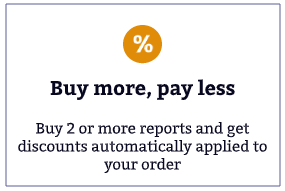Description
Vapour products with and without nicotine are not regulated under any product-specific laws. Nicotine is a scheduled drug under the Medicines and Related Substances Act and as such can only be sold by pharmacists and purchased with a doctor’s prescription.
The Tobacco Products and Electronic Delivery Systems Control Bill was introduced in Parliament in December 2022. If adopted, it would regulate both nicotine-free and nicotine-containing e-cigarettes, and their components (such as cartridge, mouthpiece, etc). The bill is currently being publicly discussed in different provinces around the country. The public hearings are expected to continue in 2024.
This report provides a detailed analysis of the current and possible future regulatory framework for e-cigarettes in South Africa, covering all policy areas.
 Reasons to buy
Reasons to buy
An ECigIntelligence regulatory report will provide you with:
- A clear and detailed understanding of current regulatory requirements affecting this sector in a specific jurisdiction, enabling you to be confident your business and your products are compliant.
- The ability to plan ahead for specific regulatory changes.
- Strategic understanding of the policy climate within the jurisdiction, enabling you to forecast how it might affect business development.
- Sources of further information, for example links to full texts of legislation and contact details for relevant government offices.
 Table of contents
Table of contents
- Executive summary
- Outlook
- South Africa: the basics
- National regulatory framework
- Age restrictions
- Product restrictions
- Labelling and packaging
- Obligation to notify
- Retail restrictions
- Public usage
- Advertising and marketing
- Taxation
- Sanctions
- Case law
- Relevant law
- Relevant bodies and organisations
 Methodology
Methodology
Our research is completely independent and original. It is conducted by ECigIntelligence’s multilingual legal analysis team, all specialists in this sector, and goes through a rigorous review and editing process before publication. Research draws on multiple sources, including: online and offline resources and data, specialist legal software, our own extensive databases and report archives, interviews with key stakeholders and government officials, and collaboration with local legal firms and on-the-ground professionals in the jurisdictions covered.




